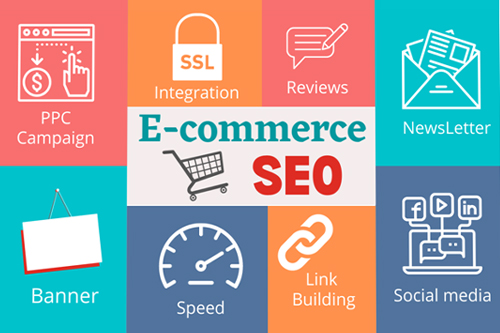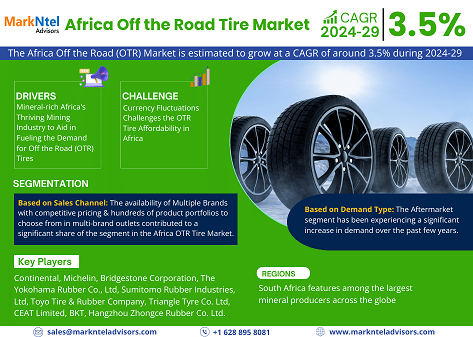In the world of ecommerce, the race to the top of search engine results pages (SERPs) can make or break a business. SEO, or search engine optimization, is essential for any online store looking to stand out in the crowded digital marketplace. But why exactly do ecommerce stores need SEO expertise to outperform their competition? Let’s dive in to explore the role of SEO in ecommerce success.
What is SEO?
Definition of SEO
SEO, or search engine optimization, is the practice of improving a website’s visibility on search engines like Google. By using a mix of strategies, businesses aim to appear higher in search results, making it easier for customers to find them.
The Role of SEO in Digital Marketing
In digital marketing, SEO is foundational. It’s about connecting businesses with customers who are actively searching for their products. For ecommerce, SEO is particularly vital because it targets customers with purchase intent, increasing the likelihood of conversion.
Why is SEO Important for E-Commerce?
With countless online stores vying for attention, many business owners ask, “Is SEO important for e-commerce?” The answer is a resounding yes. SEO is essential for ecommerce because it drives organic traffic directly to your store, putting your products in front of potential customers without the ongoing cost of ads. When done right, SEO can elevate a store’s online presence, helping it stand out from the competition and improving its chances of being discovered by search engines and customers alike.
Driving Organic Traffic and Increasing Visibility
SEO not only helps attract more visitors to your site but also ensures that these visitors are genuinely interested in what you offer. For e-commerce, the impact of SEO is clear: better search rankings lead to more visibility, and more visibility often leads to higher sales.
Why Ecommerce Stores Need SEO Expertise
Driving Organic Traffic
One of the biggest advantages of SEO is the ability to drive organic traffic. Organic traffic, unlike paid ads, doesn’t incur a direct cost per click. This makes SEO an attractive option for ecommerce stores looking to get high-quality traffic on a budget.
Increasing Visibility in Search Engines
SEO ensures that your store ranks high on search engine results pages. This visibility is crucial as most customers rarely go beyond the first page of search results.
Enhancing User Experience
SEO isn’t only about search engines; it’s about creating a better experience for users. SEO experts optimize site structure, speed, and mobile compatibility, all of which contribute to a smoother shopping experience.
Understanding Search Engine Algorithms
How Search Engines Rank Ecommerce Sites
Search engines like Google use complex algorithms to determine which sites appear at the top of search results. These algorithms take into account hundreds of factors, including relevance, authority, and user experience.
Key Ranking Factors
For ecommerce stores, some of the top-ranking factors include high-quality product descriptions, user-friendly navigation, fast loading times, and backlinks from reputable sites. Understanding these elements can help ecommerce stores achieve higher rankings.
Keyword Research: The Foundation of SEO
Importance of Keyword Research
Keyword research is crucial in SEO. By identifying popular search terms, ecommerce stores can optimize their pages to align with what customers are looking for, increasing their chances of being discovered.
Tools for Keyword Research
Tools like Google Keyword Planner, Ahrefs, and SEMrush help ecommerce stores find relevant keywords, assess their competitiveness, and track performance.
On-Page SEO: Optimizing Your Ecommerce Store
Title Tags, Meta Descriptions, and Headers
On-page SEO involves optimizing individual pages for specific keywords. This includes crafting compelling title tags, meta descriptions, and headers that attract both users and search engines.
Product Page Optimization
Product pages are the heart of any ecommerce site. Optimizing product descriptions with relevant keywords, adding high-quality images, and including user reviews can help improve rankings.
Off-Page SEO: Building Authority
Link Building Strategies
Off-page SEO focuses on increasing the authority of your site through external factors. Link building is a major component; when reputable sites link to your store, it signals to search engines that your content is trustworthy.
Social Signals and Brand Mentions
Social media activity and brand mentions also contribute to off-page SEO. Engaging with customers on social platforms can drive more traffic to your site and improve your search engine rankings.
Technical SEO for Ecommerce
Improving Site Speed
Technical SEO ensures that a site is optimized for performance. Fast-loading pages are essential for retaining users and pleasing search engines. Slow sites, on the other hand, can drive customers away.
Mobile Optimization
With more people shopping on mobile devices, mobile optimization is crucial. Responsive design ensures that your store looks and works great on all screen sizes.
XML Sitemaps and Robots.txt
XML sitemaps and robots.txt files help search engines understand your site’s structure and index it properly. This technical setup can boost visibility on search engines.
Local SEO for Ecommerce Stores
Importance of Local SEO for Location-Based Businesses
For ecommerce stores with physical locations, local SEO is key. It helps local customers find your store, bridging the gap between online visibility and offline foot traffic.
Google My Business and Local Listings
Setting up a Google My Business profile and local listings helps ecommerce stores appear in local search results and Google Maps, increasing their reach within their community.
User Experience (UX) and SEO
The Connection Between User Experience and SEO
Search engines prioritize sites that offer a positive user experience. For ecommerce, this means a site that’s easy to navigate, with clear product categories and intuitive design.
Site Navigation and Mobile-Friendliness
Effective navigation and mobile-friendliness are essential in ecommerce SEO. A user-friendly site reduces bounce rates and encourages customers to explore, increasing the likelihood of conversions.
Content Marketing and SEO
How Content Marketing Supports SEO
Content marketing supports SEO by offering valuable information that customers are searching for. Blog posts, guides, and FAQs can drive traffic to your site, build authority, and improve SEO.
Creating Valuable Content for Your Ecommerce Store
Ecommerce stores can create content around common customer questions, product reviews, or industry trends. This attracts organic traffic and positions the store as a go-to resource.
SEO Analytics: Measuring Success
Tools to Track SEO Performance
Tools like Google Analytics and Google Search Console are essential for tracking SEO performance. They provide insights into traffic sources, user behavior, and keywords driving traffic.
Metrics to Focus On
Important SEO metrics include organic traffic, bounce rate, conversion rate, and keyword rankings. Regularly monitoring these metrics allows ecommerce stores to refine their SEO strategies.
How to Stay Ahead of Competitors Using SEO
Analyzing Competitors’ SEO Strategies
Keeping an eye on competitors’ SEO strategies can reveal gaps and opportunities. By identifying what’s working for them, you can adapt similar strategies to your own store.
Continuous SEO Improvements
SEO is an ongoing process. Regularly updating your site, adding new content, and improving technical aspects can help maintain your rankings and keep you ahead of the competition.
Conclusion
In today’s highly competitive ecommerce landscape, SEO expertise is no longer optional. From driving organic traffic and boosting visibility to enhancing the user experience, SEO helps ecommerce stores thrive. By investing in SEO, online stores can achieve long-term growth, establish a loyal customer base, and ultimately outshine their competitors.
FAQs
What makes SEO important for ecommerce?
SEO helps ecommerce stores increase their visibility in search engines, driving organic traffic and attracting customers with buying intent.
How often should I update my SEO strategy?
SEO is an ongoing process; it’s good to review and update your strategy at least every few months to stay aligned with algorithm updates.
What are some free SEO tools for beginners?
Google Analytics, Google Search Console, and Ubersuggest are great tools to get started with SEO on a budget.
How does content marketing help ecommerce SEO?
Content marketing supports SEO by providing valuable, relevant content that attracts organic traffic and boosts your store’s authority.
Is local SEO beneficial for online-only ecommerce stores?
While local SEO is especially helpful for stores with physical locations, online-only stores can also benefit by targeting location-based keywords.




